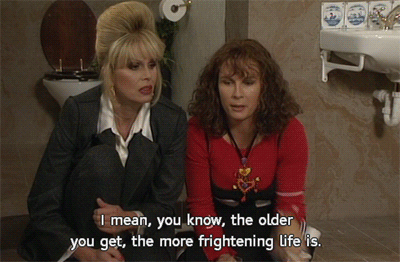10 Simple Questions That Still Totally Baffle Scientists
2. What Is The Menopause?

In evolutionary terms, the menopause just don't make no sense. Seeing as, in the crudest terms, you're just a big life-support machine for your reproductive organs, the idea that humans lose the ability to reproduce and pass on their genes somewhere in their 40s seems to go against all of the tenets of evolution. It's unlikely to be due to the fact that we "run out of eggs" because we "live longer", because (a) early human females were likely to have far fewer periods than their modern counterparts, simply due to the sheer amount of time they would spend pregnant in their lifetime (your average prehistoric woman would probably have no more than 30 periods in her life) and (b) prehistoric man probably lived well into their 60s and 70s.
So why does a human female spend nearly half her life unable to reproduce? Apart from humans, there are only two species of whale that stop breeding before their natural lifespan is up. One theory is what is known as the "grandmother hypothesis" which suggests that older and infertile members of the species would help out with the childcare, allowing the young and virile members of the community to get on with hunting, gathering and childbirth.
There are a number of flaws in this hypothesis, however, including the fact that it assumes hunter-gatherer societies were patriarchal (they probably weren't) and that an older, non-reproductive family member would use up resources that could otherwise be focussed on offspring. Basically, we just don't know.